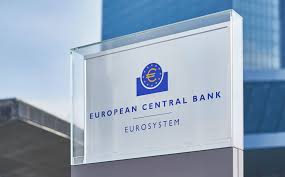According to an EU document, foreign banks located in the European Union may be required to retain greater capital and liquidity as a result of amendments to laws being discussed by the bloc’s member states.
Brussels officials want to categorize more international banks as subsidiaries rather than branches, which would oblige them to strengthen their local balance sheets and subject them to direct EU supervision. A big number of lenders that created branches in the EU after the UK exited the bloc would be caught up in the move.
According to a paper produced for EU member states and seen by reporters, changes might include an “automatic trigger for subsidiarisation” or techniques to limit regulators’ discretion in selecting which branches must become subsidiaries.
According to a June 2021 report by the European Banking Authority (EBA), there were 106 third-country branches (TCBs) spanning 17 member states at the end of 2020, holding 510.23 billion euros ($569.16 billion) in assets, with member states treating them differently.
This was up 14 branches and 120.5 billion euros in assets from the previous year, indicating a growing trend in the use of branches to access the EU market, according to the EBA.
China has the most branches (18), followed by the United Kingdom (15), Iran (10), and the United States (9).
Currently, EU banking authorities decide on a case-by-case basis whether a foreign branch should be converted into a subsidiary, which they would then supervise directly. The primary regulator of an overseas branch is its home country.
“The possibility of requiring an automatic subsidiarise trigger will alarm firms,” a banking sector official said.
Foreign branches with assets of 30 billion euros ($33.4 billion) or more are presently being examined by regulators to see if they are systemic enough to represent a risk to financial stability.
If the branch wishes to continue functioning in the bloc, it may compel it to reorganize or hold additional capital.
Stricter EU standards, according to Jeremy Kress, an assistant law professor at the University of Michigan’s Ross School of Business in the United States, could push the US to reassess its rules for foreign bank branches, which he says remain a huge regulatory loophole.
“In the United States, this might put subsidiarisation on the menu,” said Kress, a former Federal Reserve official.
APPROPRIATE PERSPECTIVE
The decision to make branches into subsidiaries was taken as a last resort, and some member states argue that the current system is excessively complicated.
“The scope of the systemic importance assessment and the subsequent joint decision appear ambiguous and inconsistent”.
According to the document, some states want to lower the asset barrier that prompts a review of whether a branch should become a subsidiary.
Lowering the limits and implementing an automatic trigger would give the European Central Bank (ECB), which oversees major banks, more power and make it more difficult for branches to avoid becoming subsidiaries.
Under a process known as a reverse solicitation, financial firms in the United Kingdom, which is now outside the EU, can still serve EU consumers who approached them without pushing or marketing.
Member states want to assess the “proper extent” of reverse solicitation, according to the document, and make it obvious when an activity should be done at least in an EU branch.
Final ratification of the modifications to banking laws is a joint decision of EU member states and the European Parliament.
The ECB is currently conducting a “desk mapping” evaluation to see whether new Brexit hubs of London-based banks have enough senior people and volume of activities to meet license criteria.
British regulators are concerned that if many bankers are compelled to relocate to Brexit centers, the country’s operations will be short on senior personnel.

















